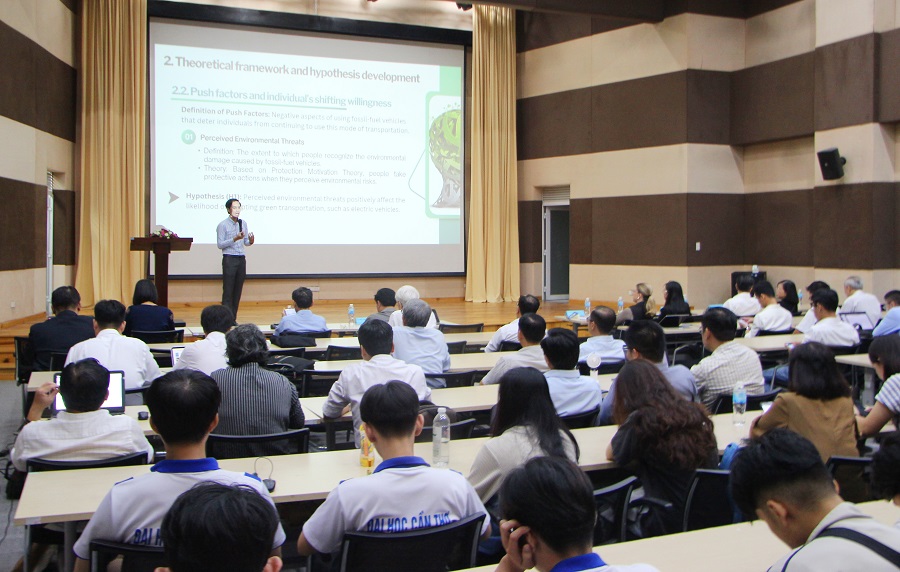
The workshop is part of the funding package “Activities to Promote Smart Cities Adapting to Climate Change in Can Tho City in 2024,” sponsored by FNF. This event fostered cooperation and mutual understanding among various stakeholders. It attracted numerous experts, researchers, and representatives from departments, universities, colleges, and businesses in Can Tho City, Ho Chi Minh City, and surrounding provinces.
Ms. Le Thuy Ngoc Lan, Vice President of the Union of Friendship Organizations in Can Tho City, emphasized that the construction of smart cities is a growing trend worldwide, including in Vietnam. She noted that the Prime Minister had previously issued Decision No. 950/QD-TTg of August 1, which approved the Project on sustainable development of smart cities during 2018-2025, with a vision toward 2030.
Regarding Can Tho City’s development into a smart city, Politburo released Resolution No. 59-NQ/TW on August 5, 2020, focusing on the city’s growth until 2030, with a vision toward 2045. Furthermore, on January 11, 2022, the National Assembly enacted Resolution No. 45/2022/QH15 to pilot specific mechanisms and policies aimed at Can Tho City's development. This policy framework is crucial for successfully transforming Can Tho into a smart city and implementing digital transformation initiatives.

Experts, researchers, and representatives of relative agencies participated in the “Technology Orientation for the Mekong Delta to Adapt to Climate Change and the Need for Smart City Management” workshop on October 24 at the Korea-Vietnam Incubator Park (KVIP) in Can Tho City
Ms. Le Thuy Ngoc Lan stated that this workshop aims to gather insights and recommendations from experts and researchers on developing an innovative city model. The goal is to create significant advancements for Can Tho City, enabling it to meet the demands of the digital age and fulfill its leading role in the Mekong Delta region.
At the workshop, Vanessa Kristina Steinmetz, Country Director of FNF Vietnam, highlighted that the Mekong Delta is the backbone of Vietnam’s economy and a crucial ecosystem that sustains millions of people. However, climate change, rising sea levels, unpredictable weather patterns, and increasing salinity threaten this delicate balance. According to Vanessa Kristina Steinmetz, the urgent need for climate change adaptation requires innovative solutions and forward-thinking governance. She believes that technology can play a transformative role in this endeavor. “By leveraging advancements in digital tools, data analytics, and sustainable practices, we can develop smart cities that not only tackle the pressing challenges of climate change but also enhance the quality of life for all citizens,” said Vanessa Kristina Steinmetz.

At the workshop, experts and researchers concentrated on sharing and discussing technical solutions to support the development of smart city models. Key topics included:
- Transitioning to electric motorbikes in the logistics sector to reduce emissions and enhance efficiency, with empirical evidence from the Mekong Delta.
- Smart transportation strategies aimed at combating air pollution and decreasing reliance on personal vehicles.
- Optimizing urban bus systems for more intelligent and more sustainable urban development.
- The role of smart homes within smart cities.
- The application of embedded AI on electronic chips, particularly in intelligent healthcare.
- The Korea-Vietnam Incubator Park (KVIP) as a hub for nurturing technological ideas.
- Digital transformation initiatives in smart enterprises.
- An assessment of the technological capabilities of the Mekong Delta's rice and shrimp supply chains.
Additionally, delegates emphasized the importance of developing smart cities in the Mekong Delta in the near future.
Thanh Xuan - Translated by Hoang Dat












